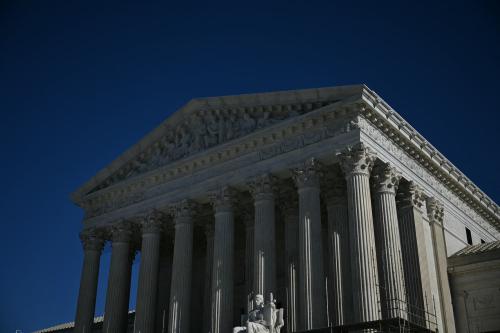Vladimir Putin’s brand of restoration politics has grown stale. Voters expressed increasing dissatisfaction with the ruling party, United Russia, in polls well before the Dec. 4 Duma elections. Putin’s ratings slipped and his Sept. 24 announcement that he would return to the presidency was not well received.
The Kremlin’s spin-doctors assumed Russian voters would follow the script of previous elections. They were wrong. Russian voters have become tired of imitation democracy. They now have more sources of information. They want real not fake political alternatives. Public resentment at being taken for granted was palpable before the elections.
People decided these elections were going to count. There was a respectable 60 percent turnout. Voters turned to the Communists and the other “official” opposition parties as a protest, boosting their collective tallies. United Russia will keep its majority in parliament, but the fact that it got less than 50 percent of the popular vote has significantly undercut the system’s legitimacy.
The Internet was the key player. Russians are some of the world’s heaviest social networkers, with their own version of Facebook (vKontakte) and a profusion of blogs and YouTube postings. The Kremlin has not censored the Internet like China. Instead, it has tried to fill the new information space with its own content. But the Kremlin’s band of bloggers can’t be everywhere in this new media environment. Russia’s independent Internet users posted blatant examples of vote-tampering ahead of official election reports.
People have moved from the Internet to the streets. The Kremlin could not and cannot ignore the size of the protests. The way of doing politics in Russia has changed, and the system will have to find ways to change with it. This past weekend, both sides adopted the stances necessary to avoid violence. Notably, official news media covered the protests, but the Kremlin has not yet loosened its grip — it seems to be studying how it needs to change its grip.
The weather was relatively mild last weekend. If it’s a warm winter, it will be easier to keep people on the streets. A notorious Russian winter might help the Kremlin. Beyond the weather, the biggest challenge for the opposition will be motivation and organization. Can groups that reflect a wide range of views coalesce into something coherent? Can they support a presidential candidate who can truly challenge Putin? Or will the Kremlin exploit the differences, co-opt opposition agendas and invite an array of new candidates in to crowd the field, leaving Putin as the main man standing? For now this seems the most likely option. But it is still early days, and a threshold has been crossed in Russian politics.
The Brookings Institution is committed to quality, independence, and impact.
We are supported by a diverse array of funders. In line with our values and policies, each Brookings publication represents the sole views of its author(s).



Commentary
Op-edA Deciding Factor: The Weather
December 12, 2011